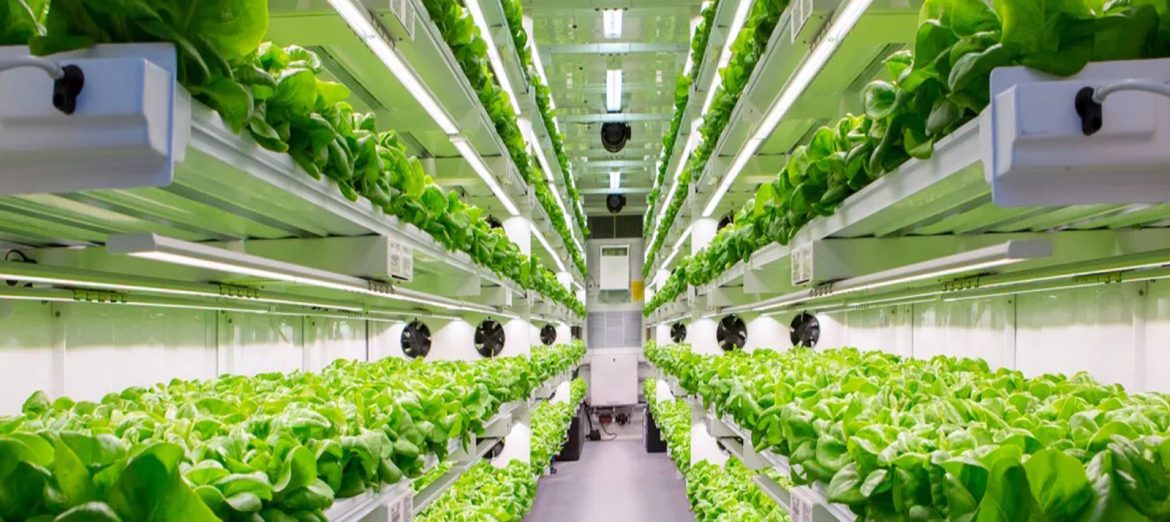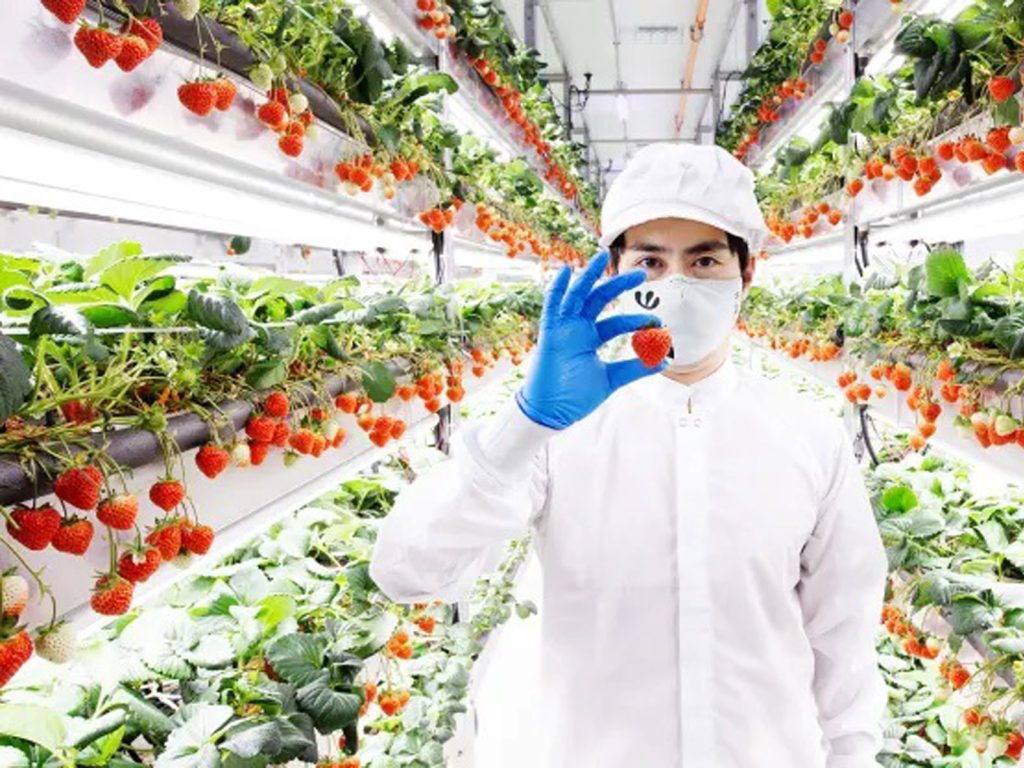
Container Greenhouses: The Future of Agriculture Solution
Explore the future of agriculture with container greenhouses that offer high productivity and sustainability in limited space. Discover how innovation and technology redefine modern farming.

Explore the future of agriculture with container greenhouses that offer high productivity and sustainability in limited space. Discover how innovation and technology redefine modern farming.
Container Greenhouse: The Future of Agriculture Solution
The increasing population and urbanization have driven the agricultural sector to seek new solutions. Urban farming systems hold promise for the future of agriculture by enabling food production even in limited spaces. In this article, we will explore what container greenhouses are, the advantages of container farming, and how they integrate with innovative technologies like automation and LED grow lights.
Container Greenhouse: Definition and Functions
A container greenhouse is a system that utilizes modified shipping containers for agricultural production. This system allows farming in limited spaces and enables year-round production independent of weather conditions. Container greenhouses are mobile and can be transported to desired locations, making them an ideal solution for urban farming projects. Furthermore, the design and interior layout of container greenhouses are optimized to provide optimal growth conditions for plants.
Container Farming Systems: Advantages and Applications
Container farming systems offer several advantages for urban areas. Here are some key benefits:
Space utilization: Container farming enables agricultural production in limited spaces. Unused areas in city centers, such as rooftops or vacant lots, are ideal for container greenhouses.
Year-round production: Container greenhouses allow year-round production regardless of external conditions. Climate control, lighting, and irrigation systems ensure the required conditions for plant growth.
Water and energy efficiency: Container farming consumes less water and energy compared to traditional agriculture. Automated irrigation systems and energy-efficient LED grow lights optimize resource utilization.
Reduced environmental impact: Container greenhouses can minimize the use of pesticides and herbicides. Additionally, by adopting organic farming principles, they mitigate environmental effects. Container farming helps reduce air and water pollution in cities.

Automation and LED Grow Lights: Powering Container Farming
Container farming systems become more efficient when integrated with automation and LED grow lights. Automation streamlines processes such as irrigation, fertilization, climate control, and data analysis, reducing labor costs and optimizing growth conditions. Sensors continuously monitor and provide feedback on water, nutrients, light, and other growth factors.
LED grow lights are a fundamental component of container farming lighting systems. They provide the necessary light for photosynthesis while offering energy efficiency. LED grow lights accelerate plant growth, control plant morphology, and increase productivity. Moreover, LED grow lights can be customized to deliver specific wavelengths and light intensities, optimizing plant development.
Container Greenhouse: Application Examples and Future Potential
Container greenhouse systems have a wide range of applications in various sectors. Here are some examples:
Restaurants and hotels: Container greenhouses enhance food quality and taste by providing local and fresh produce. They also support local agriculture, contributing to sustainability goals.
Urban gardens: Container farming allows city dwellers to grow their own food. Urban gardens strengthen the connection with nature, foster community-building, and promote sustainable lifestyles.
Food security projects: Container greenhouses can be used for emergency food production in areas facing food security challenges. This independent system provides a reliable source of food and meets the needs of local communities.
Research and education: Container greenhouses provide an ideal environment for agricultural research and educational projects. Universities, research institutions, and agricultural institutes can utilize container greenhouses to study and learn new farming methods.
Container Greenhouse Technologies: Integrating automation, sensors, and other advanced technologies further enhances the efficiency of container farming. Automation systems automate processes such as irrigation, fertilization, climate control, and data analysis, reducing labor costs and optimizing growth conditions. Sensors continuously monitor water, nutrients, light, and other growth factors, providing feedback to the automation system. This ensures the optimal growth environment for plants.
LED Grow Lights: Lighting systems play a crucial role in container farming. LED grow lights provide the necessary light for photosynthesis while offering energy efficiency. They consume less energy and produce less heat compared to traditional lighting systems. Moreover, LED grow lights accelerate plant growth, control plant morphology, and increase productivity. This enables year-round cultivation of plants in container greenhouses.
Innovative Plant Growing Techniques: Container greenhouses allow the use of different plant growing techniques compared to traditional methods. For instance, hydroponic or aeroponic systems can be employed to grow plants in water or air. These methods optimize the efficient use of water and nutrients and support faster plant growth. Additionally, the complete control over the growing environment in container greenhouses enables the provision of optimal growth conditions for plants.
Sustainability and Environmental Impacts: Container farming offers significant advantages in terms of sustainability. Reduced water consumption, energy efficiency, and reduced chemical usage minimize the environmental impact of container greenhouses. Moreover, the proliferation of urban farming shortens the food supply chain in cities and reduces carbon footprints, contributing positively to environmental sustainability.
Economic Returns: Container greenhouses provide economic benefits through increased productivity and sustainability in agricultural production. Space utilization, year-round production, and improved product quality offer opportunities for higher yields and increased revenue for businesses. Additionally, container greenhouses based on local farming support the local economy and create employment opportunities.
Future Potential: Container greenhouses and container farming systems have substantial potential for the future of urban farming. The rapidly growing population and urbanization trends increase the demand for new solutions in food production. Container greenhouses, with their advantages of limited space cultivation, reduced seasonality dependency, and enhanced productivity, can become a significant component of the agricultural sector in the future.
In conclusion, container greenhouses stand out as an important solution shaping the future of urban farming. With advantages such as limited space cultivation, year-round production, water and energy efficiency, reduced environmental impact, and integration with innovative technologies, container greenhouses offer an alternative to traditional farming methods. In terms of future potential, the use of container greenhouses is expected to become more widespread. As urban populations grow, the demand for food will increase, and limited land resources will drive the need for urban farming systems. Container greenhouses have the potential to contribute to increasing local food production, ensuring food security, and promoting sustainable farming practices.
We at Global Urban Farming Systems provide turnkey container greenhouse solutions, assisting you in designing, constructing, staffing, and operating container greenhouses. With container farming, you can achieve a 700% increase in production compared to traditional methods, save 95% water, save 80% electricity, and enable year-round production through artificial intelligence and climate control. If this opportunity excites you, contact us today to discuss how we can help bring vertical farming to your city. Get in touch with us via our CONTACT page.
